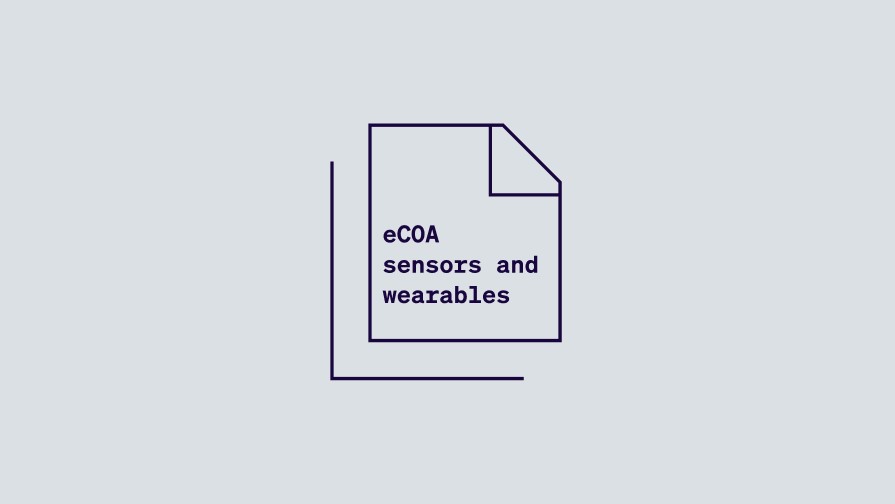Transforming trial design for the digital age Digital transformation is reshaping the landscape of clinical research. At the forefront is electronic Clinical Outcome Assessments (eCOA), a technology that streamlines data collection, enhances patient engagement, and boosts the overall efficiency of clinical trials. In this post, we explore how eCOA is transforming clinical trial design, highlighting its benefits, challenges, and the future trends that are setting a new standard for research innovation.
The evolution of eCOA in clinical trials From paper to digital Historically, clinical trials relied on paper-based assessments that often resulted in delayed data entry and increased errors. The transition to eCOA has led to:
Faster Data Processing: Immediate capture and integration of clinical data.Enhanced Data Security: Robust digital safeguards and encrypted audit trails.Cost Efficiency: Lower operational costs through reduced manual processing and paper usage.The digital transformation journey Today, eCOA is a central component of clinical trial design. Modern systems integrate seamlessly with mobile devices, wearables, and remote monitoring tools, enabling decentralized clinical trials (DCTs) where patient-centric approaches are prioritized. This shift not only accelerates data collection but also improves the overall quality of clinical outcomes.
Learn more about Medable's eCOA software solution.
Future trends in eCOA Looking forward, several emerging trends are poised to further transform clinical trial design:
Artificial Intelligence & Machine Learning: Advanced analytics to predict outcomes and optimize trial protocols.Telemedicine Integration: Merging eCOA with virtual care platforms for holistic patient monitoring.Wearable Technology: Continuous, real-time health data collection to enhance trial insights.Blockchain Technology: Enhancing data integrity and security through immutable records.Benefits of eCOA in clinical trial design Implementing eCOA offers a range of advantages that are revolutionizing how clinical trials are designed and executed:
1. Enhanced patient engagement Digital interfaces empower patients to contribute actively. With mobile accessibility and intuitive design, patients can report outcomes in real time, which improves adherence and data quality.
2. Improved data accuracy and quality By minimizing manual data entry, eCOA significantly reduces errors. Automated systems ensure that outcomes are recorded accurately, providing a reliable foundation for clinical decisions.
3. Increased operational efficiency eCOA streamlines multiple aspects of trial management—from patient recruitment and data capture to real-time monitoring. This efficiency reduces study timelines and overall costs, making trials more scalable.
4. Real-time monitoring and proactive decision-making Access to real-time data allows trial sponsors to monitor progress continuously and intervene swiftly when issues arise. This proactive approach enhances oversight and accelerates trial modifications.
5. Robust regulatory compliance Modern eCOA systems are designed to comply with stringent regulatory standards. With built-in audit trails and advanced security features, these platforms help ensure that clinical trials meet all necessary guidelines.
Challenges and considerations While eCOA offers many benefits, certain challenges must be managed to ensure successful implementation:
1. Technology integration Integrating new digital systems with existing clinical trial infrastructures can be complex. Organizations must invest in comprehensive training and support to ensure a smooth transition.
2. Data privacy and security The digitization of clinical data requires robust cybersecurity measures. Compliance with global regulations, such as GDPR and HIPAA, is essential for protecting patient information and maintaining trust.
3. Upfront investment The initial setup costs for eCOA systems can be significant, especially for smaller organizations. However, the long-term gains in efficiency and data accuracy typically outweigh these initial expenditures.
4. Regulatory uncertainty Although eCOA platforms are built to meet current regulatory standards, ongoing changes and regional variations in guidelines can pose challenges. Continuous engagement with regulatory bodies is critical.
Transforming clinical trial design with eCOA The adoption of eCOA is not just an operational upgrade—it's a paradigm shift in clinical trial design. Here’s how eCOA is paving the way for the future of clinical research:
Embracing decentralized clinical trials Decentralized clinical trials (DCTs) are becoming increasingly popular. eCOA is a key enabler in these patient-centric models, reducing the need for frequent site visits while ensuring high-quality data collection from remote locations.
Leveraging advanced analytics The integration of AI and machine learning with eCOA systems allows for sophisticated data analysis. This fusion enables faster trend identification, more accurate predictions, and better-informed clinical decisions.
Building comprehensive digital health ecosystems Future clinical trials will likely feature an interconnected digital ecosystem. eCOA will work alongside electronic health records (EHRs), telemedicine platforms, and wearable technologies, creating a unified system that enhances trial outcomes.
Customization and scalability One of the greatest strengths of eCOA is its adaptability. These systems can be tailored to meet the specific needs of diverse clinical trials, from large-scale, multi-center studies to smaller, targeted research projects.
Learn how Medable Studio with AI can build 35x faster: Book a demo.
Best practices for implementing eCOA For organizations looking to integrate eCOA into clinical trials, consider these best practices:
Comprehensive Training: Equip all team members and trial participants with the knowledge and tools needed to use the digital platform effectively.Robust Customer Support: Ensure continuous technical support to promptly address any issues that arise.Patient-Centric Design: Prioritize user-friendly interfaces that enhance patient participation and data reliability.Regular System Audits: Perform periodic reviews to verify system compliance with regulatory standards and maintain data integrity.Seamless Integration: Integrate eCOA with existing systems to create a unified data environment, avoiding isolated data silos.Conclusion: Creating real impact The impact of eCOA on clinical trial design is profound. By enabling decentralized trials, enhancing data accuracy, and improving operational efficiency, eCOA is transforming the way clinical research is conducted. Although challenges such as technology integration and data security remain, the benefits far outweigh the hurdles for organizations that are prepared to invest in digital innovation.
Organizations that embrace eCOA and its associated technologies will be well-equipped to lead the next wave of clinical trial innovation. For more in-depth insights into the role of eCOA, including its benefits and challenges for trial sites, visit our comprehensive guide: The Role of eCOA in Clinical Trials – Benefits and Challenges for Sites .










